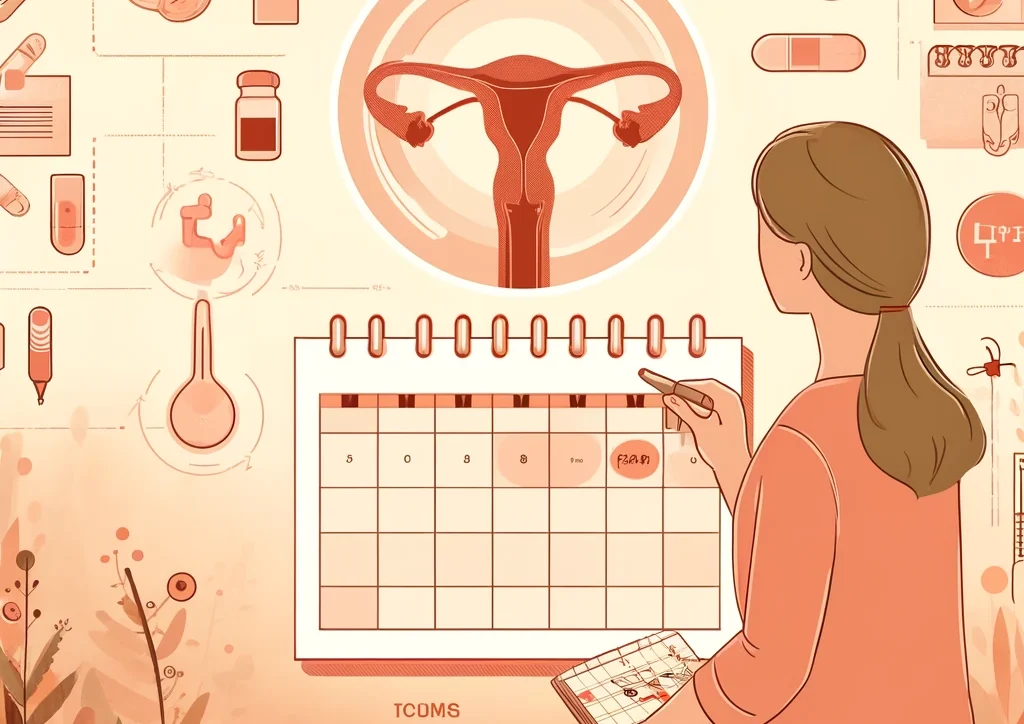What is the Ovulatory Phase and why is it important
The ovulatory phase, also known as ovulation, is a crucial part of the menstrual cycle. During this phase, a mature egg is released from the ovary and moves to the fallopian tube, ready for fertilization. This process usually takes a few days and is in the middle of the cycle, usually between days 12 and 16 of an average cycle. However, the timing of ovulation can vary and that's why it's important to know how your body works. Because the egg only survives for 12 to 24 hours, this short period is particularly important for women trying to conceive. Moreover, it can be useful for those who want to postpone their family member expansion plans to recognize this phase.
-
- Physical signs: Increased basal body temperature, thinner cervical mucus
-
- Professional help: Fertility monitors, ovulation tests
-
- Symptoms: light pelvic pain, increased libido
At “Midwives Lelystad” we recommend keeping a close eye on your body and making notes of your ovulation patterns. This can be very helpful in both planning a pregnancy and understanding any hormonal fluctuations. Contact one of our specialists for more personal guidance.
| Factor | Description |
|---|---|
| Basal temperature | Increases slightly during ovulation |
| Cervical mucus | Becomes thinner and brighter |
| Ovulation tests | Detect the LH hormone |
Important symptoms and signs of ovulation
Recognizing the symptoms can greatly help you identify your fertile days. Some women experience mild stabbing pain on one side of their lower abdomen, known as mittelschmerz.
In addition, there is a change in the consistency of the cervical mucus. Just before ovulation, this mucus becomes clear and stretchy, similar to raw egg white, creating optimal conditions for sperm cells.
You may also notice a slight increase in your body temperature. This is often followed by other secondary symptoms, such as increased libido or breast tenderness. To better understand the symptoms, please refer to the table below:
| Symptom | Description |
| Pain in lower abdomen | Mild, stabbing pain on one side |
| Change in mucus | Clear and stretchy |
| Body temperature | Slight increase |
| Sensitive breasts | Increased sensitivity |
Tips to track and increase your ovulation
At Midwives Lelystad we know how important it is to have a good picture of your ovulation and to increase the chance of ovulation. Monitor ovulation can help you understand your fertility cycle and increase your chances of pregnancy. A useful way to track your ovulation is to use ovulation tests. These tests measure the level of luteinizing hormone (LH) in your urine, which peaks a few days before ovulation. In addition, there are other signs to look out for, such as changes in your body temperature and the consistency of your cervical mucus.
-
- Use ovulation tests to detect LH surges.
-
- Pay attention to changes in your body temperature.
-
- Observe the texture of your cervical mucus.
Do you want to increase your ovulation? There are several strategies you can try. Healthy food plays a crucial role; Eating foods rich in antioxidants can improve the quality of your eggs. Regular exercise also helps keep your hormones in balance, which is crucial for normal ovulation. But don't forget to reduce stress. Too much stress can disrupt your menstrual cycle, so a little relaxation can do wonders.
| Tip | Description |
|---|---|
| Healthy food | Rich in antioxidants |
| Exercise | Keeps hormones in balance |
| Reduce stress | Relaxation is important |
Nutrition and Health: Support your ovulatory phase
| Food category | Recommendations |
|---|---|
| Protein | Fish, Chicken, Beans |
| Vegetables | Spinach, Kale |
| Healthy Fats | Avocado, Nuts, Seeds |
-
- Be aware of what you eat.
-
- Choose fresh and natural products.
-
- Avoid processed foods as much as possible.
Common mistakes and how to avoid them
-
- Wrong Timing: Timing is everything in this phase. Misinterpretation can lead to unfortunate results.
-
- Lack of Consistency: Tracking changes irregularly can become confusing.
In addition, many women make the mistake of thinking that every cycle is the same. Not every month will be exactly the same. Factors such as stress, diet and even changes in your routine can affect your ovulation. Therefore, take these variables into account and adjust your expectations accordingly. An ovulation test can help to gain more certainty.
| Wrong | Solution |
|---|---|
| Neglecting body signals | Keep a diary |
| Unrealistic expectations | Use an ovulation test |
Conclusion
Thank you for reading our article, “Everything You Need to Know About the Ovulatory Phase.” We hope you are now a lot wiser about this special part of your menstrual cycle. At Midwives Lelystad we believe it is important that you are well informed, so that you can make conscious choices about your body and your health.
Do you have any questions or would you like more tailor-made advice? Please do not hesitate to contact us. Our team of experienced midwives is ready to support you, from your very first questions to your entire pregnancy journey. Also follow us on social media for more tips, information and support.
See you soon at Midwives Lelystad – your partner in a healthy and conscious pregnancy.








